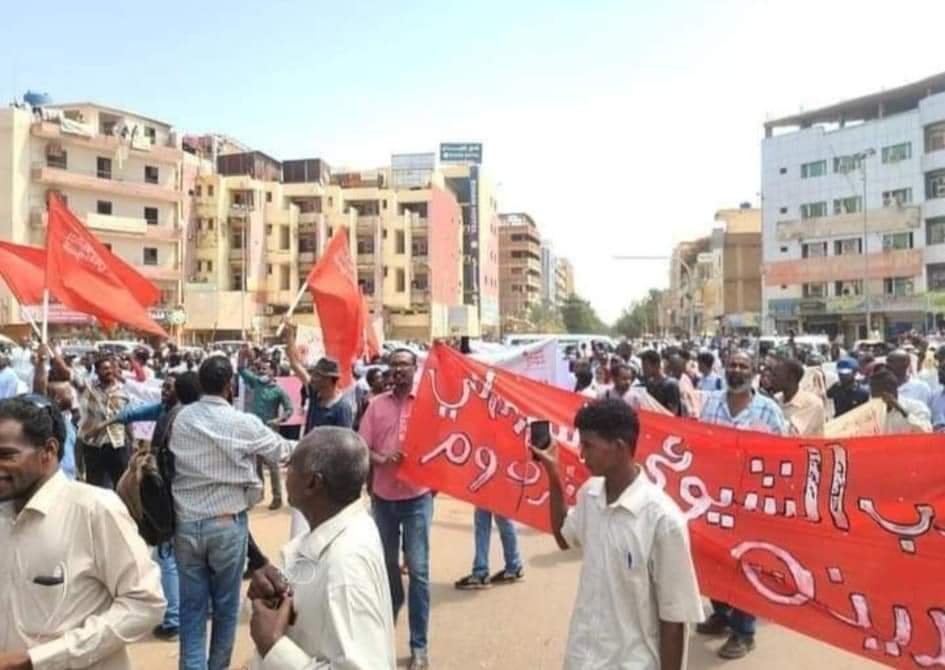The Sudanese Communist Party (SCP) has faced heightened persecution in recent days, with the country’s ruling military forces arresting three politburo members on two occasions. Such arrests included the party’s General Secretary, Muhammad Mukhtar Al-Khatib. This follows the meeting of SCP officials with revolutionary forces in South Sudan, as the Party pushes for an end to military rule.
General Secretary Muhammad Mukhtar Al-Khatib, and politburo member Salih Mahmoud, were arrested following their return from South Sudan last Thursday (May 19). The two had formed part of an SCP delegation visiting South Sudan, to meet with both Sudan Liberation Movement (SLM) leader Ustaz Abdulwahid Mohamed Nour, and Sudan Peoples Liberation Movement/Army (SPLM/A) commander Abdulaziz Alhelo.
The delegation discussed the Party’s document “Sudan: the stalemate and ways to restore the revolution”, in what the SCP called a continuation of “previous efforts aiming to politically unify the Sudanese revolutionary forces, to topple the coup d’état and build civil democratic state, and bring about a comprehensive equitable peace settlement in Sudan.”
Following their meetings, much of the delegation were “subjected to interrogations and movement restrictions by South Sudan Foreign Intelligence Organ, regarding their travel to Kauda to meet with commander Alhelo without informing Southern Sudan authorities,” says the SCP.
Muhammad Mukhtar Al-Khatib, who had been arrested at his home, and Salih Mahmoud, who was arrested while still in Khartoum airport, were later released from detention, on Friday 20 May. Yet only two days following, SCP politburo member Amal Alzain was arrested, while returning from a Party press conference. She too was released a day later.
For the Communist Party’s spokesman, Hassan Othman, “what happened is not new,” as he explained on channel Al-Hadath: “extensive dialogues have been held and are continuing in order to unite the forces of the Sudanese revolution in achieving radical change.”
Sudan has seen regular demonstrations by civilians since the military took power last October. Demonstrators call for the establishment of civilian rule, and the adressing of societal problems such as the country’s high inflation levels. Such resistance has not been taken lightly by Sudanese security forces, who have brutalised protesters, including the use of tear gas.
Mia English, is a member of the YCL’s Birmingham branch



